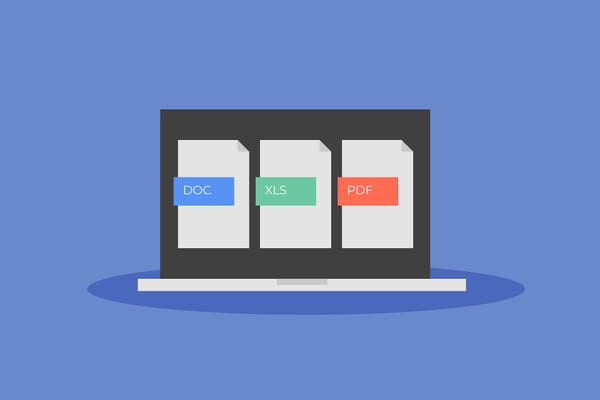Working Remotely as a Consultant? 9 Cyber Risks You Can't Afford to Ignore

Working remotely as a consultant brings great flexibility, whether your expertise is marketing, accounting, HR, or real estate. But working from your home or favorite coffee shop also exposes your consulting business to cybersecurity threats that can harm your reputation and finances.
Below are nine key cyber risks consultants face, along with practical tips to keep you protected.
1. Unsecured Public Wi-Fi
Consultants often work from cafes, hotels, or shared offices, where public Wi-Fi networks are common. These connections aren't secure, making it easy for hackers to access your online activities.
What to do:
Always use a reliable Virtual Private Network (VPN) to encrypt your internet connection. Avoid free VPN services—choose one from a trusted cybersecurity provider with positive reviews instead.
2. Weak or Reused Passwords
As a consultant, you manage many online accounts—email, social media, cloud storage, banking, and more. Using simple or repeated passwords across different accounts makes it easy for hackers to gain access.
What to do:
Get a password manager. It creates secure passwords for you and stores them safely, meaning you only have to remember one master password.
Related: What Is Business Identity Theft and How to Protect Your Business
3. Phishing and Email Scams
Phishing emails look genuine but trick you into sharing sensitive information like passwords or financial details. Cybercriminals often pretend to be trusted clients, banks, or popular software providers.
What to do:
Check email senders carefully. If you're unsure, call or message the client directly to verify. Never click on unexpected attachments or links, especially when the sender pressures you to act quickly.
Related: How Scammers Trick You into Compromising Your Own Security—and How to Stop Them
4. Leaking Client Information
Your consulting work often involves handling sensitive client data—financial documents, contracts, personal details, or business strategies. Losing this information or accidentally exposing it can quickly ruin client trust.
What to do:
Always use secure, encrypted cloud storage services like Google Drive, Dropbox Business, or OneDrive. Limit file access strictly to essential people, and regularly back up your files.
Related: Small Business Reputation Attacks – Why They Spike in Q1 and How to Stay Safe
5. Malware and Ransomware Attacks
Malware is malicious software that infects your devices, while ransomware can lock your data until you pay a ransom. Both typically infect devices through malicious email attachments or unsafe websites.
What to do:
Install reputable antivirus software that continuously scans and blocks threats. Keep your software and operating systems updated regularly.
Related: Responding to a Cyberattack - What to Do When You Get Hacked: A Small Business Guide
6. Lost or Stolen Devices
Your phone, laptop, or tablet stores valuable client data and business information. Losing a device—or having it stolen—means sensitive information could fall into the wrong hands.
What to do:
Always lock your devices with strong passwords or biometric methods (fingerprint or face recognition). Enable device tracking features ("Find My" for Apple devices, "Find My Device" for Android), allowing you to remotely wipe your device if lost. Encrypt your devices, and always maintain regular backups.
Related: Protect Your Business and Data if Your Phone Is Lost or Stolen
7. Risks in Video Meetings
Video conferencing tools like Zoom, Google Meet, or Microsoft Teams can become targets for unauthorized access ("Zoom bombing") or secret recordings by intruders.
What to do:
Always secure your meetings with passwords and waiting rooms. Control who can share screens, and never share meeting links publicly. Update your meeting apps frequently, and delete or securely store sensitive recordings.
8. Security Breaches in Business Apps
Consultants depend heavily on software like QuickBooks, Slack, Trello, Zendesk, Zoom, or Gmail. A security breach in any of these apps can expose confidential client data and seriously harm your business.
What to do:
Turn on two-factor authentication (2FA) in every app you use. This provides extra security by requiring a code sent to your phone when logging in. Also, use digital identity monitoring services to quickly detect and respond if your data is ever leaked. Regularly review privacy settings and permissions within your apps to limit data exposure.
Related: How to Check If Your Business Is Affected by a Breach (And What to Do if It Is)
9. Collaborators Mishandling Sensitive Data
Working remotely often involves collaboration with freelancers, virtual assistants, or subcontractors. Even trustworthy partners can unintentionally cause data breaches by mismanaging access.
What to do:
Clearly define security expectations upfront. Only give collaborators the access they truly need, and regularly audit permissions. Immediately revoke all access when someone finishes their collaboration with you.
Your Easy Cybersecurity Checklist:
- Use a trusted VPN whenever you're on public Wi-Fi.
- Set up a password manager to handle strong, unique passwords.
- Double-check emails carefully for phishing attempts.
- Store client data securely and encrypted.
- Protect your devices with antivirus software.
- Enable tracking and remote-wipe functions for your devices.
- Always secure your video meetings.
- Regularly monitor your digital identity for breaches.
- Invest in cybersecurity specifically designed for small businesses.
Bitdefender Ultimate Small Business Security provides comprehensive protection against phishing, scams, and fraud. With the built-in AI-powered Scam Copilot, you'll instantly know if an email or message is safe before you click. Plus, breach monitoring alerts you if your sensitive information is leaked—helping you stay safe, productive, and confident while working remotely.
Check out our plans for small businesses.
FAQs
What are the biggest cybersecurity threats for remote consultants?
Remote consultants commonly face phishing emails, weak password management, unsecured Wi-Fi networks, malware attacks, and security breaches in business apps.
How can consultants protect sensitive client information?
Always encrypt and securely store client data, use strong passwords, enable two-factor authentication, and limit data access strictly to essential people.
Is antivirus software necessary for consultants working remotely?
Yes, antivirus software is a must, but alone isn't enough anymore. Remote consultants and small business owners need more comprehensive cybersecurity solutions that also protect against phishing scams, ransomware, app breaches, and identity theft.
tags
Author
Cristina is a freelance writer and a mother of two living in Denmark. Her 15 years experience in communication includes developing content for tv, online, mobile apps, and a chatbot.
View all postsRight now Top posts
How to Protect Your WhatsApp from Hackers and Scammers – 8 Key Settings and Best Practices
April 03, 2025
Outpacing Cyberthreats: Bitdefender Together with Scuderia Ferrari HP in 2025
March 12, 2025
Streamjacking Scams On YouTube Leverage CS2 Pro Player Championships to Defraud Gamers
February 20, 2025
How to Identify and Protect Yourself from Gaming Laptop Scams
February 11, 2025
FOLLOW US ON SOCIAL MEDIA
You might also like
Bookmarks







